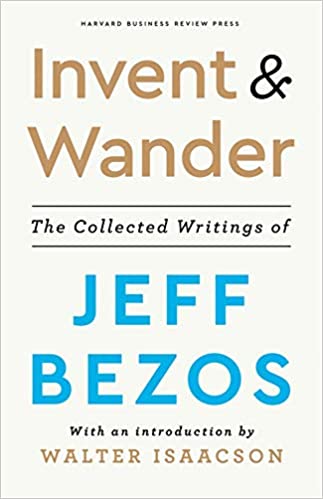A lightbulb's just blown in the kitchen and I need to buy a replacement. So it's decision time. There's a small electrical shop a few blocks away. I could walk there, which would be good exercise – and I'd be helping a local company. But it's rainy and cold. There's also a good chance that they won't stock the slightly unusual bulb I need.
Then there's the big home-improvement superstore a few miles down the road. They'll have what I'm looking for, but their prices are high. And a trip there would mean taking the car.
Or I could just get what I need online. If I type in the serial number printed on the old bulb, I'll immediately see several companies eager to sell me what I want. I'll be able to compare prices and read customer reviews. Then I'll just have to click "Buy now" and the new bulb will be on my doorstep tomorrow.
Why wouldn't I do it that way?
Well, if I do choose the online option, my bulbs will need lots of packaging, and I'll be putting another delivery truck on our street.
What's more, that truck will likely drive right past the local stores I've turned my back on – stores struggling to survive because they just can't compete with the price, speed, and convenience of Amazon.
Because I'll almost certainly go for Amazon. They've been my go-to for most of my adult life, and they're a hard habit to break.
They've got my address book and my bank details. They always have what I need, and they never keep me waiting long. And they know me so well. In fact, from the buying suggestions they make, they often seem to know what I'm thinking even before I do.
So it's a no-brainer. But when I sign off the order and close my phone, I know that I'll have the same mix of feelings I always do. With me and Amazon, it's a love-hate thing.
Amazon's founder, Jeff Bezos published his "collected writings" recently, and I delved into them with interest. "Invent and Wander" is made up of shareholder letters, lectures, interviews, and speeches, by the man who started Amazon and shaped it into the trillion-dollar enterprise it is today. In the process, he became one of the richest people in history.

I was eager to learn how Bezos had built Amazon into a company that serves me and countless millions around the world so well.
I also hoped to read things that might answer some of my concerns – and, maybe, even make shopping with Amazon a little easier on my conscience.
I certainly got a very clear idea of the Bezos approach to business. His strongest guiding principles are long-term thinking, and a relentless concern for customers. Both of those ring true with me.
For one thing, I'm old enough to remember when Amazon just sold books! But even then, Bezos knew that his company would eventually become an "everything store." His annual letters show remarkable patience and certainty.
I'm also very familiar with Amazon's customer experience, and how much that's improved. These days I can ask Alexa for suggestions about my Dad's birthday present, then get her to buy it, gift wrap it, and deliver it to his door.
"Invent and Wander" highlights many appealing sides of Jeff Bezos' character. He's got endless curiosity, a pioneering spirit, and the ability to predict what the world is going to need next. The book's title highlights his creativity, along with his commitment to take risks and learn from mistakes.
He's also got lots of positive-sounding plans. Amazon is committed to reducing packaging, and invests heavily in electric vehicles. It supports its workers to access life-changing training, and funds projects for underprivileged kids.
But the book also left me with some unanswered questions. It doesn't address the widespread concerns about Amazon's approach to tax, for example.
Likewise there's no challenge to Bezos's positive picture of supporting other businesses and communities. (And we know that many companies have simply been unable to survive the competition from Amazon, to the detriment of main streets and malls.)
There's hand-picked feedback from Amazon workers, but no way to know how representative this is of sentiment around the world. Recent headlines about a campaign for union rights – against the company's wishes – suggest that the workforce is far from settled.
And although data is clearly the biggest driver of Amazon's success, there's no real debate about how that happens. And that leaves a big and rather worrying hole.
"Invent and Wander" explains some of the ways in which data helps Amazon personalize our experience across a range of products. And how the company uses it to make strong business decisions. But do we make better decisions as a result of this? Or are our choices actually being curtailed?
Data helps Amazon to improve customer experience and lower prices. Do we, though, pay a premium in other ways – when poor-quality e-books get published, say, or local shops close?
This book definitely made me think about the data Amazon has on me. And not just every detail of every transaction, but everything I've searched for – or even asked Alexa to do. Yes, it's information that empowers Amazon to help me. But it also gives them huge potential to control my choices. And as data drives Amazon forward, many of the knock-on effects of its success are not ones that I would have chosen.
And yet I keep giving Amazon full consent to use my data – to create the unrivalled service it offers, extend its reach, and continue asserting its dominance.
After reading "Invent and Wander," my feelings about the company and its founder are more conflicted than ever, truth be told. But it's certainly given me plenty to think about.
Just as soon as I've logged on and bought that bulb.
We review the best new business books and the tested classics in our monthly Book Insights, available as text or as 15-minute audio downloads.
So, if you're a Mind Tools Premium Club member or corporate user, download or stream the "Invent and Wander" Book Insight review now.
If you haven't already signed up, join the Mind Tools Club and gain access to our 2,400+ resources, including 390+ Book Insights. For corporate licencing, ask for a demo with one of our team.
How do you cope when life throws you a curveball? What are your strategies or predictions for the future of work? Join the discussion below and let us know!

"It started with an ice-breaker. I found myself face-to-face with the head of the whole company. And as I started answering the question, I began to cry, right in front of him. " Melanie Bell
Book Insight, Communication, Mental Health, Stress, Wellbeing
"Stolen Focus" is a wake-up call. It deserves our attention – if we can spare it!
Book Insight, Empowerment, Personal Development, Stress, Wellbeing
"From below, he was a nightmare. Untrustworthy, evasive and weak, he would go weeks without speaking to any of us outside formal meetings." - Simon Bell